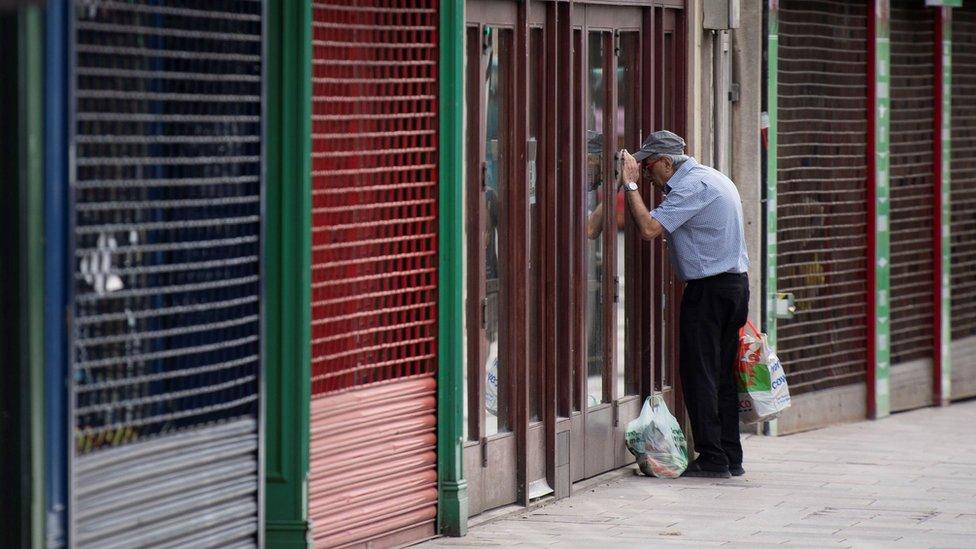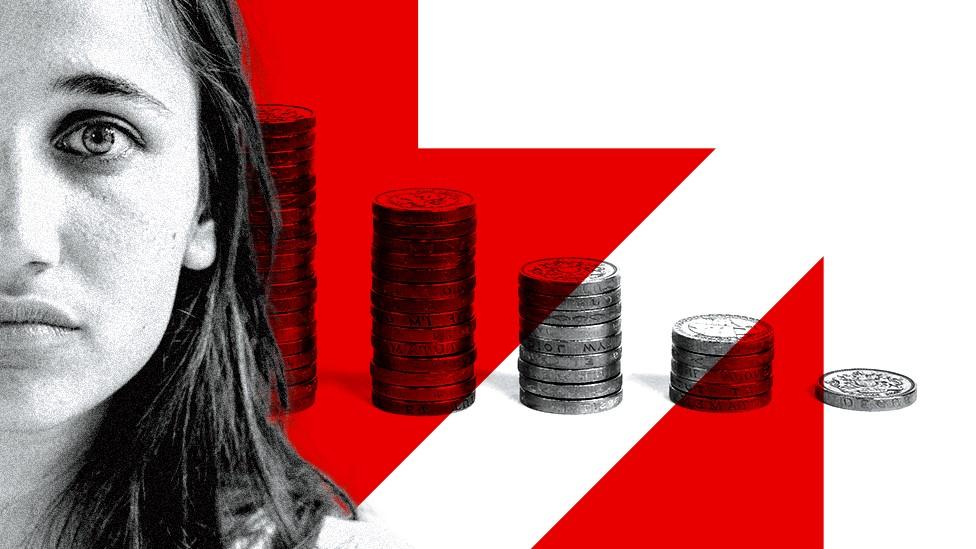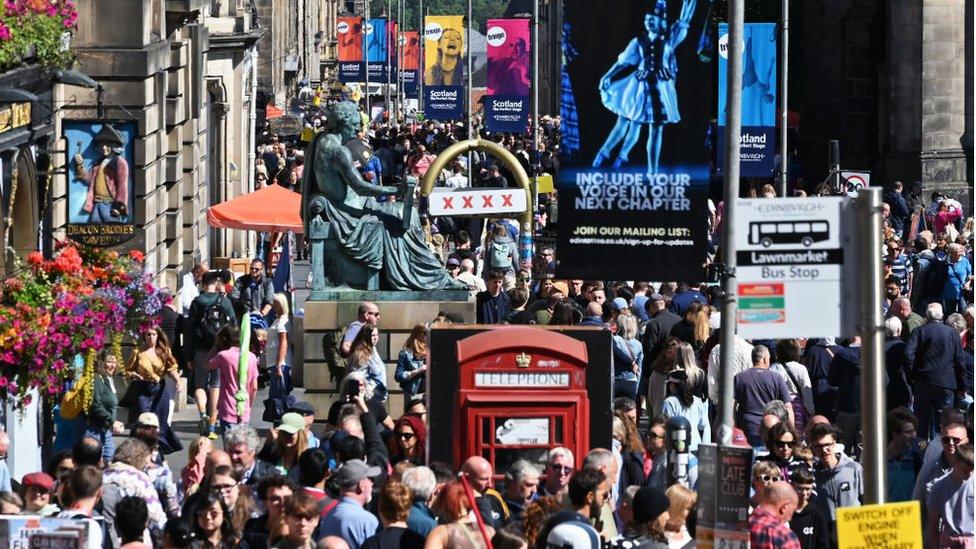Scotland's economy likely to be in recession - report
- Published

The report reflects subdued consumer spending and confidence
Scotland's economy is likely to be already in recession, according to figures from an economics think tank.
The Fraser of Allander Institute said economic output was falling for a second quarter and forecast it would continue until the end of 2023.
A recession is at least two consecutive three-month periods of falling output, or gross domestic product (GDP).
The second quarter of 2022, covering April, May and June, is reckoned to have seen no growth or contraction.
The most recent Scottish government reports show declines of 0.8% in June this year, and 0.2% in July.
The institute's figures have been revised downwards since their last forecast issued in June.
Its researchers point to three consecutive quarters of falling output - starting in July this year and ending in March 2023.
Strathclyde University's Fraser of Allander forecast, external reflects subdued consumer spending and confidence levels, with expectations of household finance going negative for the first time since the institute's quarterly Economic Commentary report began.
The Institute's full year growth forecast for 2022 has been lowered from 3.8% to 3.6% - a relatively high number reflecting the growth out of last year's Covid restrictions.
The forecast for next year has fallen furthest since the June look-ahead, down from growth of 0.5% to contraction of 0.6%.
For 2024, there is weak growth, with the forecast down from 1% growth to 0.8%.
The outlook indicates a lack of confidence from economists that the measures being introduced by the Liz Truss government are going to spark faster growth rates at least until 2025, even though the prime minister has made that her top priority.
Prof Mairi Spowage, director of the institute, said: "The data points to weakening demand in the economy as inflationary pressures pervade every aspect of our lives.
"Consumer confidence is starting to weaken with attitudes on the outlook looking pessimistic."
She added: "In practice, this means Scotland is likely to enter a recession."
Huge demand for public services
Angela Mitchell, Scotland's senior partner at Deloitte, which sponsors the survey, said many business leaders had never navigated their business "through a period of such high inflation and weakening economic activity".
"Charities and public bodies, unable to pass on costs or pivot plans like businesses, are also facing immense pressure," she said.
"The dual blows of the pandemic and cost-of-living crisis are having a profound impact on the public sector's spend power, while simultaneously driving huge demand for public services."
However, Ms Mitchell added that there was "an opportunity to plan and prepare now for the months ahead", unlike in the pandemic.
"Longer-term thinking, building in resilience and working towards creating an organisation that is fit for the future, will help businesses not only to recover, but to thrive," she added.
A further indication of slowdown has come from a business survey for Highlands and Islands Enterprise, carried out in June and July.
It found falling confidence in the state of the economy and a sharp decline in the number of firms exporting, with companies in the region reporting a higher impact from Brexit, particularly in the food and drink sector.
- Published4 October 2022
- Published10 May 2024

- Published24 August 2022

- Published5 August 2022

- Published25 January 2022